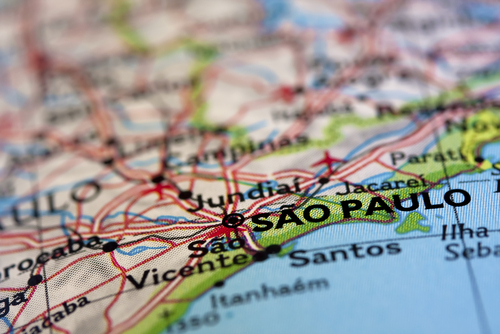
I spend a lot of my time studying how to use the ever growing number of tools available to communicate mine and my tourism clients’ messages. Over the course of the next 700 or so words I will share some of the most important lessons I have learnt. And at the end of the blog there’s a twist, and a quick experiment to explore how our industry might do more.
Four days ago I shared what has already become my most popular Facebook post. One of my clients – a hotel in Dominica – had filmed their staff dancing around their hotel to Pharrell’s hit Happy, and I shared this with a short post enticing people to watch. So far the post has been seen over by 20,000 people, been clicked more than 2,900 times, and has over 1,000 likes, comments and shares.
These Happy reboots have become something of a tourism social media meme in recent months, as companies and places all over the world make their own versions of the video, and highlights from their destination get shared far and wide as a result. So it’s not that surprising my post has done well. Its content is easy to share. And doing so makes us feel a bit better.
Likewise, my most popular blog of the last few months involves another upbeat Facebook meme – a much shared fable about ‘how an African tribe practises forgiveness’. The post I wrote challenging the story has been read five times more than any other article I have written this year. Once again it connected to something high in the popular consciousness, and gave people a simple way to engage.
What makes a tourism post successful?

When I study the analytics for the 50 or more blogs that Harold Goodwin and I have written for this website over the last year, one trend leaps out. Six of the top seven posts have something to do with marketing in the title. (The other one is about looking after animals, another perennial favourite). For someone who earns a living working in tourism communication, this is good news.
What is less encouraging – because I am not looking to just market, but rather to better communicate issues I consider important – is that other posts on key issues affecting tourism – for example on labour rights, poaching and water scarcity, have hardly been read at all. If marketing wasn’t in the title, it didn’t get read.
This experience was borne out during World Responsible Tourism Day at WTM last year. It was standing room only for the workshop on marketing responsible tourism. Yet flagship events on what tourism can do about child abuse or climate change were half empty.
This can change. In the last few months in the UK the abuse of children has become The Story. Jimmy Saville. Rolf Harris. A suspected paedophile ring in Government. There isn’t a day goes by without another revelation. As more people share their experiences, the veil of secrecy is lifted a little more. Past criminals get caught, future crimes get prevented, and children become safer today.
Using Social Media better for tourism

Thankfully the very next step is as simple as sharing a video on Facebook. The Code is an industry-driven responsible tourism initiative with a mission to provide awareness, tools and support to the tourism industry in order to prevent the sexual exploitation of children. Hundreds of companies are already signed up – from giant multinationals like Accor, Hilton and Tui, to small independent tour companies and individual hotels and lodges. Many people reading this blog will be among them. All of us should be.

It’s easy to join. membership offers a range of advantages. Competitive edge. Protection against risk. The chance to connect with other likeminded members of the tourism community, and the market benefit of being known as a responsible brand. The very stuff that people open articles or go to seminars on ‘marketing responsible tourism’ to understand.
Most of all though – every time a company joins, it becomes less likely that a child will be abused.
If you aren’t a member yet, you can join The Code by clicking here. If you are a already member – thank you. And whether you are a member or not, I ask you to do one quick and easy thing. Share this post in your tourism networks and channels. Encourage people you know in the industry to read it. Let everyone see it in their activity feeds, as many times as possible. I doubt we’ll create the next Grumpy Cat, but we will have used social media better, and may have helped do something much more important.


very good read, Jeremy thanks for sharing.